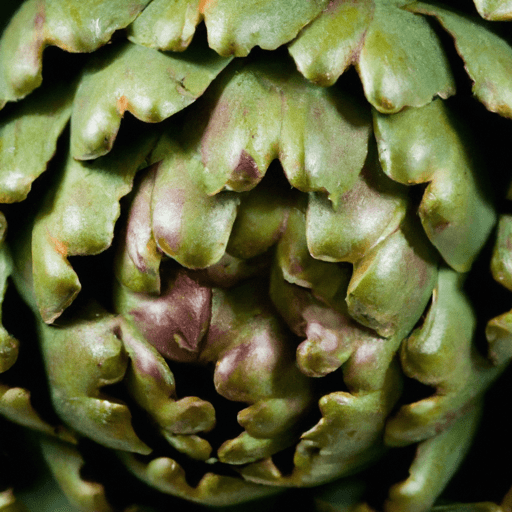Unveiling the Artichoke: A Delicate Delight
Artichokes are a unique and captivating vegetable that has been enjoyed in Mediterranean cuisine for centuries. With their unusual appearance and delicate flavor, artichokes offer a delightful experience for both the adventurous foodie and the seasoned culinary expert. But what exactly makes an artichoke so special? Let’s dive into the world of this intriguing thistle to uncover its hidden treasures.
Unraveling the Taste
At first glance, artichokes might appear intimidating, with their armored exterior and prickly leaves. However, beneath this tough exterior lies a tender heart that boasts a subtle and nutty flavor. Culinary enthusiasts often describe the taste of artichokes as earthy and slightly sweet, with a hint of bitterness.
While the outer leaves may provide a slightly fibrous texture, the inner leaves and heart offer a buttery and delicate mouthfeel. When cooked correctly, they become succulent and infused with a burst of flavor that is truly irresistible.
Versatile Uses in Cooking
Artichokes are incredibly versatile in the kitchen, offering a multitude of possibilities for culinary exploration. From appetizers to main courses, these remarkable vegetables blend seamlessly with various flavors and ingredients.
Dips and Sauces: Artichoke hearts can be chopped, pureed, or roasted to create delightful dips and sauces. Whether combined with garlic, lemon, or parmesan cheese, these creations make for excellent accompaniments to crusty bread or vegetable crudités.
Salads and Pasta: Tossed into a vibrant salad or added to a hearty pasta dish, artichokes bring texture and flavor to the table. Their unique taste pairs especially well with lemon, herbs, and olive oil, creating a refreshing and light dish.
Stuffed Artichokes: Steamed or baked artichokes, when stuffed with a delicious mixture of breadcrumbs, herbs, and cheese, become a show-stopping centerpiece. These impressive creations are perfect for special occasions or a gourmet twist to your daily menu.
Rich in Nutritional Goodness
In addition to their culinary appeal, artichokes also offer a wide array of health benefits. These verdant thistles are a nutrient powerhouse, packed with essential vitamins, minerals, and dietary fiber. Here are just a few nutritional highlights:
Vitamin C: Artichokes are a great source of vitamin C, which is essential for a healthy immune system, collagen production, and overall well-being.
Fiber: With a notable amount of dietary fiber, artichokes can aid digestion, promote satiety, and contribute to a healthy gut.
Antioxidants: Bursting with antioxidants, such as cynarin and silymarin, artichokes have been linked to potential liver protection and improved cholesterol levels.
Artichokes: Fun Facts and Historical Significance
The artichoke plant belongs to the thistle family and is native to the Mediterranean region.
Ancient Greeks and Romans believed that artichokes had aphrodisiac properties and used them as symbols of fertility and abundance.
Marilyn Monroe was crowned the first “Artichoke Queen” in 1949 during the annual Artichoke Festival in Castroville, California.
Time to Embrace the Artichoke
Now that you’ve discovered the intriguing world of artichokes, it’s time to give them a try. Whether you decide to indulge in an artichoke dip, savor a stuffed artichoke, or experiment with a new recipe, one thing is certain: the artichoke’s unique taste and versatility will leave you longing for more.
So, venture into the culinary realm of this extraordinary vegetable and let your taste buds explore the tender heart hidden within its thorny layers. Embrace the artichoke, and let it bring delight and inspiration to your culinary endeavors.
Interesting Facts About Artichokes:
Origin: Artichokes, scientifically known as Cynara cardunculus var. scolymus, are native to the Mediterranean region. They have been cultivated for food since the ancient Greeks and Romans, who valued them for their culinary and medicinal properties.
Common Uses: Artichokes are popularly used in various cuisines around the world. The edible portion of the artichoke is the immature flower bud, which is often boiled, steamed, grilled, or roasted. The individual leaves can be dipped in sauces or butter and scraped between the teeth to remove the meaty part. The tender heart of the artichoke is often cooked and used in salads, dips, pasta dishes, or as a topping on pizzas.
Nutritional Benefits: Artichokes are a nutritious addition to a balanced diet. They are low in calories and fat, and are a good source of dietary fiber, vitamin C, vitamin K, folate, and potassium. Artichokes are also known for containing antioxidants, such as cynarin and silymarin, which have been studied for their potential liver-protective properties.
Unique Properties: One unique property of artichokes is their ability to cause a temporary alteration of the taste buds. A compound called cynarin found in artichokes temporarily changes the perception of flavors, making water taste sweet or other foods taste differently after consuming the vegetable. Additionally, artichokes contain a compound called inulin, a prebiotic fiber that promotes the growth of beneficial gut bacteria.
Historical Significance: Artichokes have an ancient and rich history. They were considered a delicacy in ancient Greek and Roman cultures and were associated with nobility, wealth, and fertility. In the 16th century, Catherine de’ Medici, who came from Florence to marry King Henry II of France, introduced artichokes to the French court, where they gained popularity. Since then, artichokes have become an integral part of Mediterranean cuisine and are enjoyed worldwide.




Use the share button below if you liked it.
It makes me smile, when I see it.